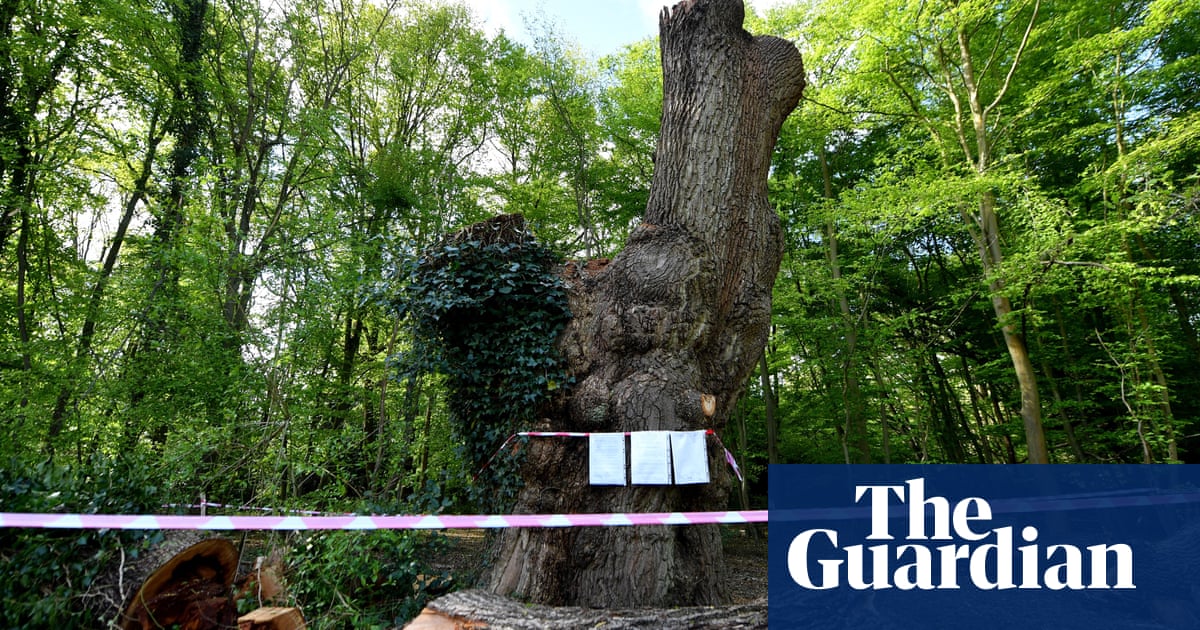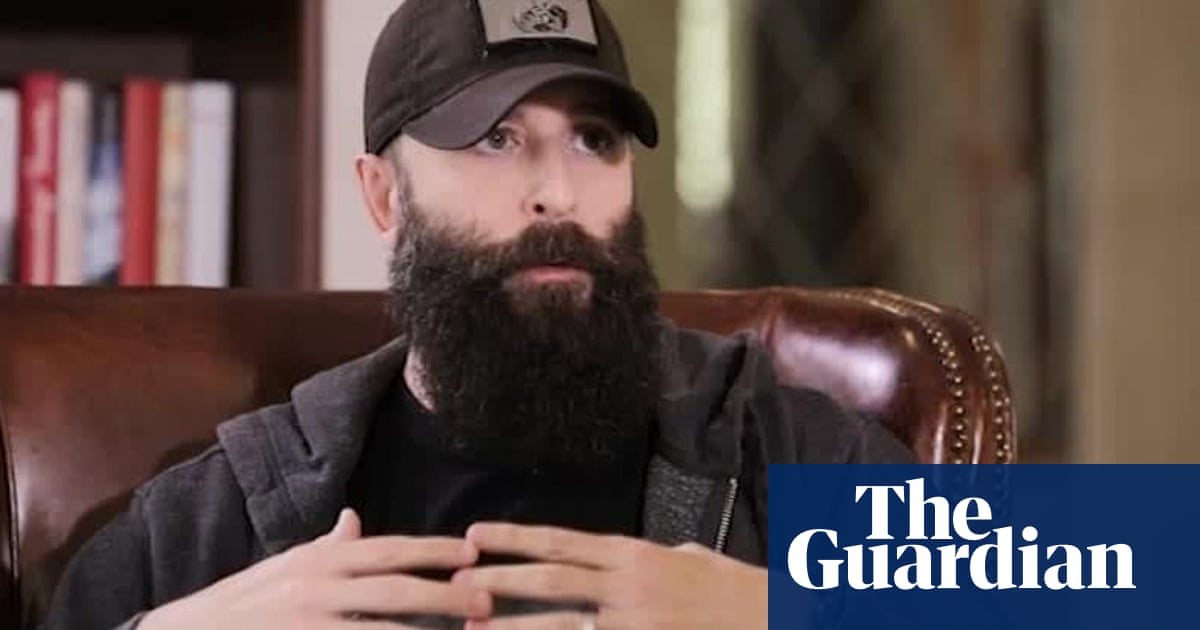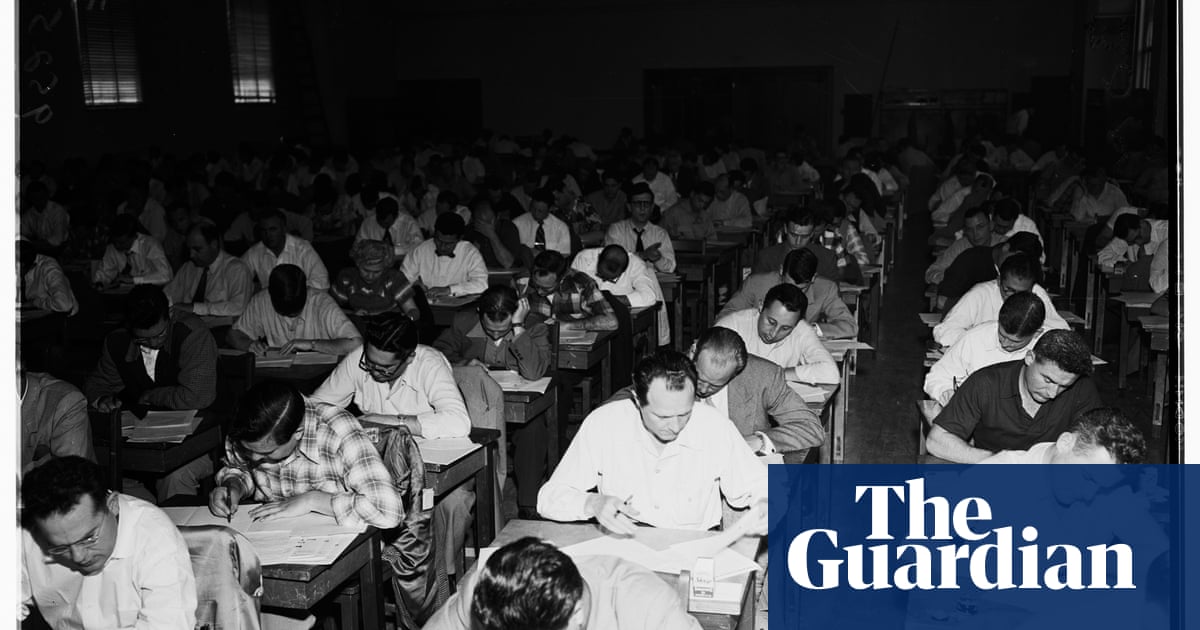“Claudio has changed my life,” Borja Iglesias said and all around him, as they jumped and sang and smiled and hugged, his teammates felt the same; he has changed all of their lives. At the end of Celta Vigo’s victory over Villarreal on Wednesday, players and staff crouched low before fans and for the first time a hush fell over the Estadio de Balaídos. All together now, the chant started slowly, quietly, whispered, but the pace quickened and the volume grew bit by bit until they burst to their feet, belted out their name and bounced off each other, footballers fell into the net laughing and one thought emerged above any other: how much fun they were having.
This is the way football’s supposed to be: enjoying, belonging. This is the way it has been since Claudio Giráldez came along: good even when it has been bad and getting better all the time. The last time Celta played Villarreal they were beaten 4-3 with a 100th-minute winner, a game of seven goals that could have been 17 after which Iglesias said: “If we’re going to lose, let it be like this.” Eight months on Celta beat them back, a 3-0 victory lifting them into a European place where they have not finished for a decade and embodying all they want to be. Iglesias was a ball boy back then and it was “cool”, he said, but not quite like this, grateful for the days he has been given.
Giráldez had been thinking the unthinkable, ready to walk, when Celta offered him the manager’s job last March. Born and raised 10 miles away and a success as B team coach, he had even won the derby against Deportivo de La Coruña, but taking the first team was not the plan. It was expensive too – Celta had signed Rafa Benítez for three years on €3m each – but this was an emergency. As it turned out, it was also an opportunity. They had thought it a coup to get the Champions League winner in for their centenary season yet he did not complete it, sacked in March 2024, one place and two points off the relegation zone having won just five times in 28, the worst win percentage in 80 years. So they called Giráldez and he matched that in a third of the games.
La Liga results
ShowTuesday Barcelona 1-0 Mallorca, Valencia 1-1 Espanyol.
Wednesday Alavés 1-0 Real Sociedad, Athletic Bilbao 1-0 Las Palmas, Celta 3-0 Villarreal, Getafe 0-1 Real Madrid.
Thursday fixtures Atlético v Rayo, Betis v Valladolid, Leganés v Girona, Osasuna v Sevilla.
Celta climbed to safety swiftly. A year on, having spent zero euros on new signings and Iglesias one of only three players joining them last summer, they are seventh. The final Champions League place, held by the Villarreal team they beat, is within reach. At Balaídos, they believe it is possible, there is hope – and that is a success in itself, the point of it all. It is not just that Celta could return to continental competition for the first time since that Old Trafford semi-final in 2017. It is that relegation, more real than Europe in a time when they finished 13th, 13th, 17th, 17th, 8th, 11th, 13th and 13th, and a fate from which Iago Aspas too often had to rescue them, has been left behind. It is the way they have done it, who they have done it with and what it all means, how it feels. And it feels good, theirs.
Born in O Porriño in Pontevedra province, a town of 20,562 people, Giráldez was a Celta fan who said the world stopped when the ball was at the feet of Aleksandr Mostovoi. Nephew of the former Celta and Real Valladolid centre-back José “Pepe” Lemos, he could play a bit too. Spotted representing Porriño at the Vigo Cup, he left for Real Madrid at 13, arriving the same year Zinedine Zidane did, but home pulled, more than a playing career. He regretted that and regretted the time away too, which he felt even more keenly when his father died. He did not hit the gym, did not look after his diet, did not do the things others did, all the essential extras. Instead, he trusted everything to his left foot and his brain; both were good but not enough.
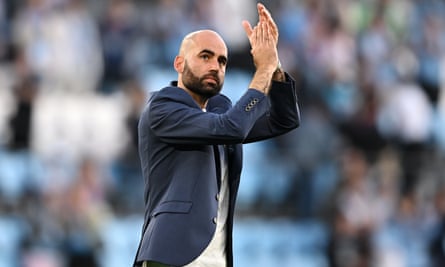
While he trained with Sergio Ramos and Arjen Robben, joining first-team sessions, Giráldez only played one game for Castilla, the B team – and that was against Celta in Segunda B, Group I. Aspas played against him that day in September 2007; Michu scored. He had a year at Atlético Madrid’s academy, but went back to Galicia: Pontevedra, Ourense, Coruxo. And then Porriño Industrial, where he did everything from coaching to ticketing to chasing sponsors. He also sold insurance.
“I tell my players now not to be the donkey I was,” he says. But there was something about him that was always more coach more than player anyway. The way he tells it, he learned to read and write with Don Balón magazine, Marca guidebooks and football stickers. He was, he said, a bit of a friki: an anorak, a geek. He played PC Futbol, Spain’s Championship Manager with Michael Robinson on the box. He played at coach in his teams too, noting lineups, formations and drills, a collective view which partly got in the way of his individual development. He argued with coaches and admits he could be “unbearable” and a “pain in the arse”. He got two degrees – sports science and journalism – and never quite made playing his everything. He got his coaching badge at 19.
He coached in Tercera in Vigo, took Celta’s under-19s in 2021 and the second team the year after. When he reached the first team last season after eight years coaching in the academy, he was the second youngest manager in Primera, behind Iñigo Pérez. He was younger than Aspas, his centre-forward and the club’s best ever player. “It seems like I’m young but I’ve been around 20 years,” he says. The time at Madrid and Atlético shaped him, especially working under Abraham García, Fernando Torres’s mentor. But his ideas also came from Johan Cruyff. Above all they came from Celta, where he watched Eduardo Berizzo and Luis Enrique, had long conversations with Eduardo “El Chacho” Coudet, and saw what the kids could do.
On his first night in charge, Celta won 2-1 at the Ramón Sánchez Pizjuán Stadium. “This is the way we have to play,” Aspas said after. “Even if we lose, we have to play the way we know.” Aspas and his teammates got bored and increasingly irritable under Benítez, something irremediably broken. Fans had too, the identification lost. For the first time in 15 years, under Benítez, Celta fielded an XI without a single academy player. Giráldez was a liberation. He changed everything.
The new coach trusted them, believed in them and had inculcated a footballing ideal already. He was closer to them but demanding. Hugo Sotelo says they have a love-hate relationship and Iglesias’s claim that Giráldez changed his life, calling him “the best coach I’ve ever had”, was about support too and the warmth was shared: “Borja is a man who dignifies this sport,” the coach said. As for the kids, he knew they could play, so they played. The only problem, he said, was the music in the dressing room.
after newsletter promotion
It was time to enjoy this. Always watch Celta, even when they lose. They were beaten 4-3 by Barcelona on Saturday and drew 2-2 with them earlier this season, as they did with Real Betis and Girona. They lost 3-2 at Osasuna. They scored 17 in four Copa del Rey games before getting knocked out 5-2 after extra time at the Bernabéu. Only two La Liga teams have conceded more; only four have scored more. They were beaten at home by Madrid and Atlético but out-shot both. “Celta play, Madrid win,” as one headline put it. Although it took a while, although they lost two in a row before this midweek – that 4-3 at Barcelona and 2-0 against Espanyol – those were their only defeats in 10, the control and assuredness increasing. Giráldez rightly said: “Survival was the objective. No one expected us to be fighting for Europe; this is something to be enjoyed.”
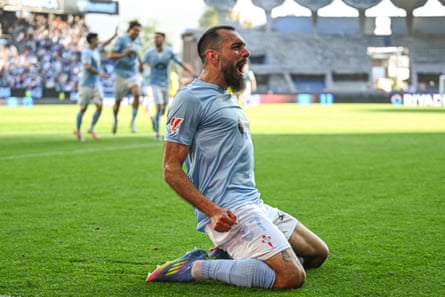
Something very real too after 3-0 victory over Villarreal. It was helped by a red card but beyond the points or the place in the table, the whole thing was a portrait of what Celta are, a picture of happiness. Of the 16 players Giráldez used, 10 are under 25, 11 played in the academy, and eight are Galicians, seven from the province. There was a goal each for three generations of youth-team products and Galicians: the 20-year-old Fer López got the first, the 32-year-old Iglesias – the heart of the Celta B Panda Team from where his nickname came before embarking on a career that has brought him back eight years later – got the second and departed to a standing ovation, embracing the 37-year-old Aspas and holding Giráldez in a long hug. And Aspas almost added an outrageous third immediately before scoring a penalty in the final minutes, the evening complete.
At the end, as the seagulls flew across from the Atlantic, someone handed Iglesias a Polaroid picture of his goal and 19,324 people put their arms around one another and sang. “I was at the academy when they were in Europe and the atmosphere was cool but I don’t think I’ve ever seen a communion like this,” Iglesias said. “We have to look after it, enjoy it and live it intensely.”

.png) 3 hours ago
5
3 hours ago
5



